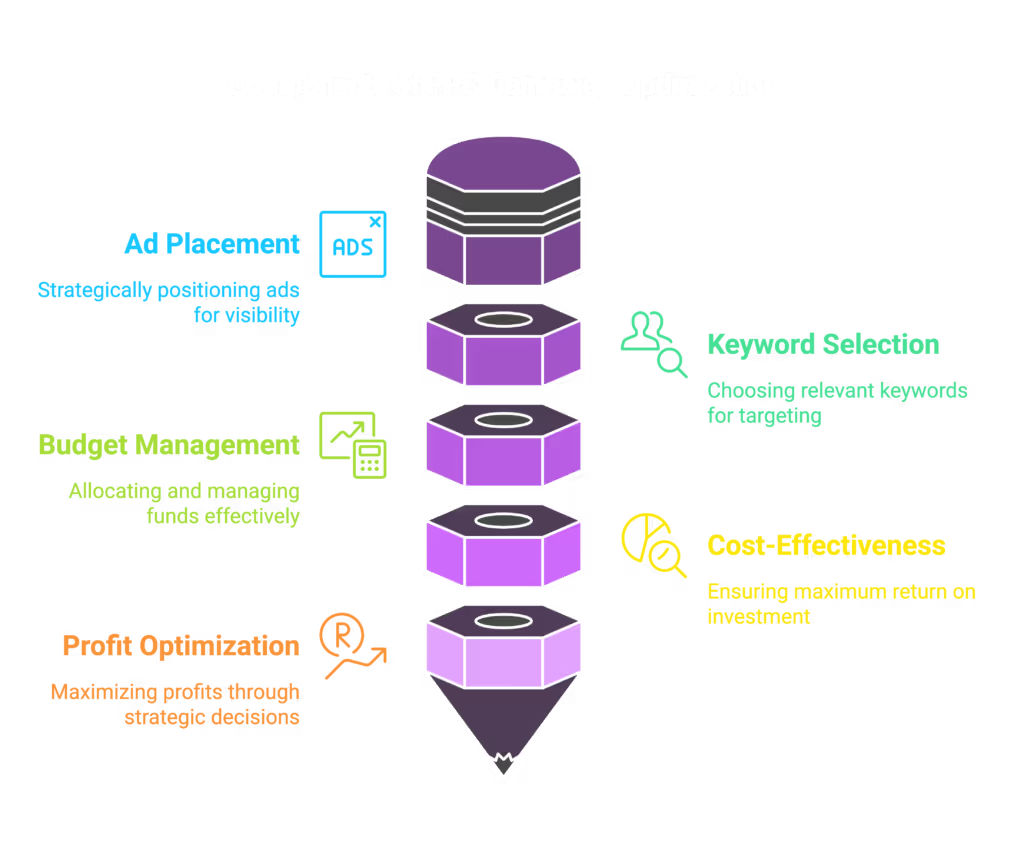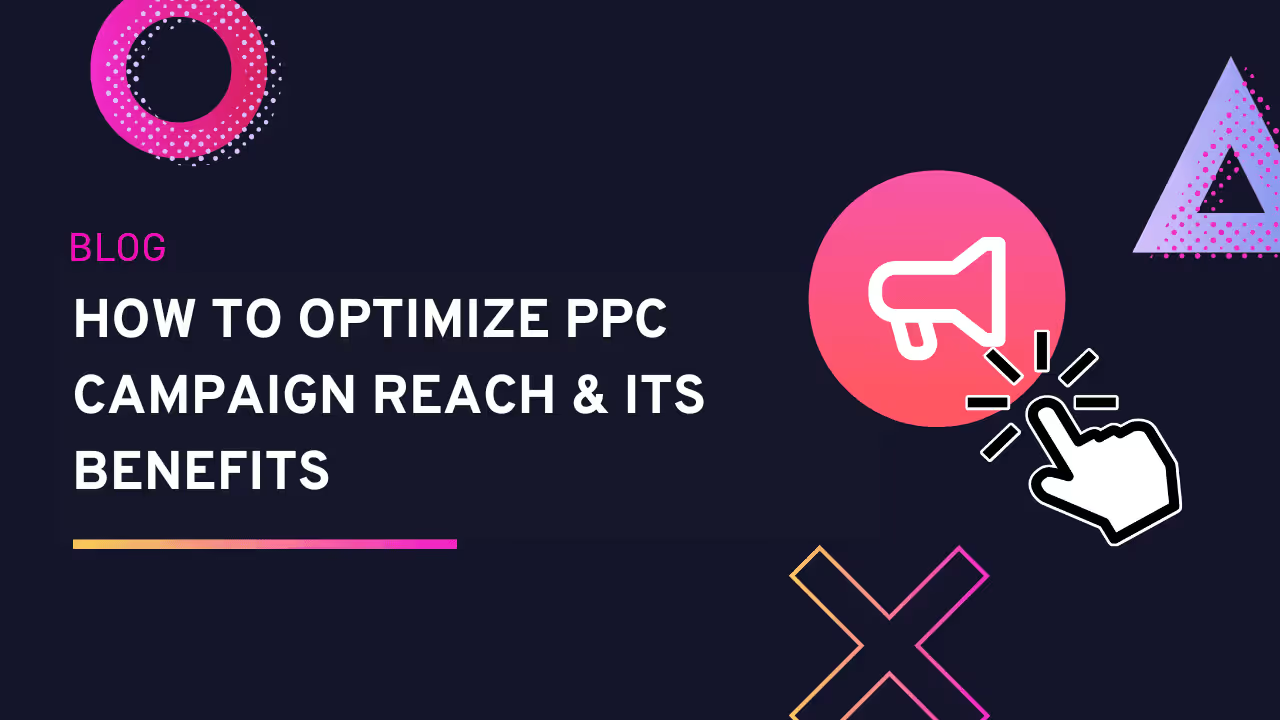Optimizing your PPC Campaign Reach based on a budget can significantly take your company to new levels. Over time, more marketing strategies have been developed to help you take advantage of the perks of paid advertising.
With these strategies, you can reach more people with your campaigns, generate more web traffic, and achieve more business goals. If you want to know how to optimize your PPC campaign reach with a limited budget, this article is for you. We will also outline the benefits of optimizing your reach in PPC campaigns.
So, let’s get started, but first — an overview!
What is a PPC (Pay-Per-Click) Campaign?
PPC is a digital marketing process where advertisers are charged a fee for every click on their ads. PPC is a better way of acquiring more web visits rather than seeking to acquire those visits organically. An example of PPC is search engine advertising. In search engine advertising, the placement of ads on the search engine’s sponsored links so that the specified keywords display related products of a particular business.
Pay per click needs planned spend management, just like investment management. To be successful in optimizing profits, as is the main aim of every business, you should learn to use cost-effective marketing strategies. There is always more than one way of doing things, yet you must strive to use the most rewarding and cost-effective campaigns.
In this article, you will understand budget optimization for maximum reach in PPC Campaigns.

What is the purpose of PPC campaign optimization?
PPC optimization is tracking the progress of the existing PPC campaign to maximize its reach by making necessary changes to its keywords, campaign settings, and ad group structure. It is aimed at maximizing paid search results by first increasing product visibility.
PPC optimization focuses on maximizing the number of clicks, reducing the cost per click, and improving return on investment at the lowest advertising costs. It is useful for all marketers to enhance the performance of their campaigns to generate quality leads and display ads to more people.
What are the benefits of campaign reach optimization in PPC?
Budget optimization in PPC campaigns allows you to manage advertising costs across your ad sets for the best overall results.
Here are some of the main benefits of using budget optimization in your PPC campaigns:
- Generates more traffic for your site
- Increases the number of audiences you can reach
- Helps you avoid making the common PPC mistakes
- Allows you to get conversions from your target audience
- This leads to a better return on ad spend
- Gives you a flexible campaign budget
Want to analyze your PPC performance, web analytics, or your social media pages for your custom reporting? Try Dataslayer for Google Sheets or Data Studio.
Seven steps to optimize your PPC campaign reach
Here are the seven steps to create your optimized PPC campaign reach. Ready to reach more people with your PPC campaigns with a tighter budget? Here are the marketing strategies and steps to get you started.
So, let’s dive in!
Establish a goal
Before beginning a marketing campaign, you first need to set a realistic goal in your mind. Yes, you need to reach more people with a limited budget, but you also need to do more.
A successful campaign reach optimization requires more research and strategic planning. You need to know the type of audience you need to target, the actions you need them to take, and more.
Having a realistic outcome expectation in mind will help you prepare the estimated budget and the bidding strategy from the start. After that, you will now work until you hit your target.
Optimize keywords
Optimizing your keywords per target audience prevents your PPC campaign from falling flat. If your PPC campaign falls, users will not find your ads as they search online. Optimized keywords enhance quality web traffic to your ads.
You can master keyword optimization for your PPC campaigns in the following ways:
- Separate all negative keywords: Negative keywords are those not related to the products your site is offering. Separating them prevents web visitors who search for those words from landing on your site. All you need are the right keywords that will bring quality web visitors who will complete tasks such as subscribing to a mailing list or signing up for a free trial. So, you can make a separate list for all the negative keywords.
- Focus on the most lucrative keywords: It is not an easy task to select the most performing keyword, especially with a long list of keywords. In such a situation, you can use the 80-20 rule, where you will set your focus on 80% of the best-performing keywords that can drive 80% of your results. You will consider metrics like clicks, cost, conversion value, and impressions to find the top-performing keywords.
- Stop using underperforming keywords: Measure impressions and clicks to know the underperforming keywords, then avoid them because they cost you more. Stagnant keywords do not bring in more customers and may prevent you from achieving your business goals.
Make good use of audience targeting and available channels
To be successful in your attempts to gain more online visibility, you must be where your prospects are. When you use PPC, you are advantaged to select your target audience from any demographics such as profession, job function, location, age, and gender.
To leverage your audience targeting, you can use the following tips;
- Increase your bids in areas that have the highest conversion rates.
- Target similar keywords and multiple locations using two different campaigns.
- To optimize your campaign results, run multiple campaigns targeting a single area.
- Run multiple campaigns targeting multiple areas with bid adjustments.

Also, use the right channels, especially if they are industry-specific, where you can reach the right audience. And a targeted PPC ad group gives you a higher chance of converting more audiences.
Another pro-tip to succeed is assigning different click values to various platforms and audiences so that you maximize the ROI from every channel.
Create a high-converting landing page
The landing page of your ad campaign is a decision point for a visitor. It determines whether a visitor will convert or not. Avoid sloppy landing pages because they will make you lose leads. To become successful in your campaign, you need to have great landing pages which will act as your ad selling power tool.
Here are the three elements of a highly converting PPC landing page:
- Has simple navigation: The landing page must be easy to access and usable. Visitors should not encounter distracting information as they browse through the page.
- It has a visually appealing design: The PPC landing page has a simple yet user-friendly design. The color schemes, fonts, and animations have an eye-catching design.
- It has clear and relevant calls-to-actions: Avoid using an irrelevant call to action, as they will break your landing page. Clear and relevant call-to-actions throughout the page encourage more clicks.
Shift to manual bidding
Automatic bidding is a common mistake among B2B advertisers while starting up PPC ads. A wrong bidding strategy will land you in a costly pitfall. The reason for being cautious about automatic bidding is that it targets a broad audience, which could lead to unnecessary costs of advertising clicks, hence affecting your ROI.
It is reasonable to go for manual bidding to avoid most of those risks. Manual bidding is a more customizable approach that can boost the performance and conversion in PPC campaigns. With manual bidding for PPC campaigns, you gain control over the bidding process, delivery, and ad frequency. In the control process, you can identify what works best and use it to improve the click-through rate. Therefore, you can easily adjust your ads to meet your campaign goals.
Optimize a remarketing PPC strategy
Remarketing is also called retargeting in this case and is a better way of re-engaging with your audience. This technique is simple to use. You need to display only relevant ads to the visitors of your website that have already done an action like filling in a form.
You need to know which ads are showing up and at what time. To avoid unnecessary ads displaying to visitors as they browse online, you need to adjust the bids according to the visitors’ behaviors.
Remarketing is important. After all, it helps you strengthen your brand because it personalizes your messages to people who have already visited your website so that your brand becomes more familiar. It also boosts conversions.
Run a competitor analysis
One of the best things you should do in PPC management is to know how your competitors work. Your analysis of your competitors will serve you greatly when setting your PPC budget estimates. That way, you get the data to inform your decisions.
You do not have to be stranded not knowing how to set your estimates. You will have competitors with outstanding PPC campaigns, and those are the ones you will use to your advantage. Conducting a competitor analysis for PPC will give you information on the current market conditions. Among the things you will research about your competitors are:
- Trending keywords
- Their products
- The amount they spend on PPC ads
After collecting all this information, nothing will stand between your business and a successful business campaign. It may not be easy to find all the information, but you can gather as much as possible that you can find them.







